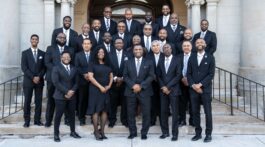 Last time I affirmed the inspiration of the Bible, but I denied its inerrancy. This question ended the post: Is it [the Bible] just the accumulation of ancient mystics relating the results of their meditations?
Last time I affirmed the inspiration of the Bible, but I denied its inerrancy. This question ended the post: Is it [the Bible] just the accumulation of ancient mystics relating the results of their meditations?
There’s a lot of sentiment these days that the Bible is simply the spiritual speculations and superstitions of ancient people who lack our knowledge of science. I hear this a lot.
There was no way to prove oterwise: belief is a matter of faith. But I have to say, the habit of looking down on people in the past because of our supposed moral superiority strikes me as incredibly arrogant. While there’s little question that we have more technical and scientific knowledge than people in Bible times–for the most part, the pyramids and some other things raise questions–there’s no indication that we have a stronger grip on reality or spirituality than they did.
And the Bible is a singular book. By far the most ancient book to have survived for some 3500 years. Yes, we have smaller works from other cultures, the Gilgamesh Epic, for example, but it was lost for thousands of years. The Bible has not only survived, it has been in continuous use for more than three thousand years. I know, I know, it wasn’t collected in one volume that long ago, but the individual works that make up the Bible have been in continuous use for many centuries.
These works of literature have been preserved with precision. We know that because, in the Dead Sea Scrolls, or the Qumran Documents, as they are also known, there is a complete copy of Isaiah. This is the oldest complete copy of any book. And the differences between that copy, and the next oldest one, 1100 years younger, are trivial. After 1100 years, the text is essentially identical!
That alone would make the Bible a remarkable book, but it is in so many ways so different than other ancient texts. I have already blogged some about this here.
But let me add that ancient chronicles of Kings are quite common; those describe the faults of reigning kings are non-existent outside the Bible. Ancient scribes were the equivalent of today’s press secretaries. It was their job to make the king (who paid them) look good, not expose their weaknesses.
Still, there’s so much more. Lyric poetry, stories of betrayal and redemption, of seduction and retribution. And all with a God’s-eye perspective.
It’s a great book, a powerful book. And that’s why it is so often abused and misused–which we will look at next time.










